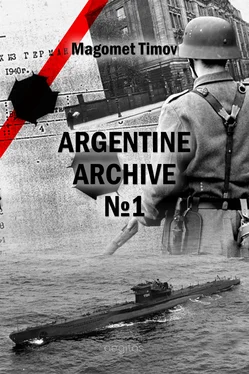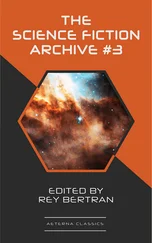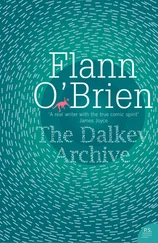“Admiral,” the President continued, “naval intelligence reported that not just fascist henchmen, but even some of the world’s leading nuclear experts, have built their nest in one Latin American country. Simply put – runaway German nuclear physicists. What do you know about this?”
Hillenkoetter's cheek twitched. The president would not have noticed if he had not already been staring at his inscrutable face. The admiral answered evenly and calmly:
“We’ve been working on this topic for a long time, ever since the Argentines handed us those fugitive German submarines. Lengthy interrogations of the crews and commanders of the German submarines yielded practically nothing, but specialists of the Office of Strategic Services concluded that these two submarines brought some passengers to the coast of Argentina. The Argentine Coast Guard found nothing suspicious in the coastal zone, but this means nothing. Volksdeutsche Germans inhabit the entire coast near Buenos Aires. They were at one time very loyal to the Hitler regime and could well have sheltered the fugitives.”
Truman got up from his chair and walked to the large window, pulling open the curtains. He turned to the admiral.
“Go on, go on. It's all very interesting. As I understand it, it was not the party bosses of the Third Reich that arrived on these boats?”
“Yes, sir. Our specialists examined the cabins of the submarines with great care. They found nothing unusual until the radiation specialists intervened.”
“Radiation?”
“Yes. Our work on nuclear weapons had already reached the final test stages, and we knew perfectly well that the Germans had advanced quite far in their research in this area. Anyway, it occurred to someone to examine the cabins with a dosimeter…”
“And?”
The admiral smiled with one corner of his mouth.
“One compartment had a small spike. Not much, hardly noticeable, but this allowed us to assume that there were some radioactive substances or people who had direct contact with it, previously transported in it. Back then, it was not too alarming. The war was ending. We were head and shoulders ahead of everyone in the nuclear race. Real-world tests were just around the corner. We postponed that case. But now, after the Soviets have reached relative parity with us – not in terms of carriers of nuclear weapons, we are still far ahead of them with bombers – the time has come for a renewed search in this direction.”
Truman sat down in a chair opposite the admiral, leaned back.
“And you think that former Nazi scientists, if they exist, could help us make some kind of leap forward in the development of nuclear weapons of greater power?”
The admiral nodded.
“Exactly.”
“And what is being done in the search for these most mysterious physicists?”
“We’ll use our agents in Argentina and Chile in the operation, and use the Chilean ‘station’ for operational communication, since we still feel at home there. Argentina is more complicated. The local dictator, Juan Perón, is very independent, widely implements a policy of nationalizing enterprises and the natural resources of the country, encouraging trade unions and flirting with the Volksdeutsche. He is interested in investments, and the fugitive Germans brought a lot of gold there. But we already focused our residency on solving the problem.”
Truman rubbed his palms contentedly.
“Bravo, admiral, bravo! Consider yourself redeemed in my eyes for the Korean crisis. No, no, I can’t guarantee you that you’ll not resign from your current post. I can’t mess with both houses of parliament right now. But I promise you that you will remain in the Navy, regardless!”
“Thank you.” Hillenkoetter stood up quickly, bowed his head in a sign that he understood the president perfectly. “May I go now?”
“Go,” Truman waved his hand. “Leave the adventures in Korea to the military, focus completely on the Argentine problem yourself. The last thing we need is for the Russians to come to grips with it. And may God bless you!”
An old, but time-tested Dakota howled with effort, her engines trudging in a veil of clouds at a height of only six thousand feet. The leaky interior didn't add any comfort, but what could you expect from a glorified army truck with only wings?
In the cargo hold, the three gentlemen sat on the hard wooden side seats. Walsh glanced furtively at the third one. Rosenblum had introduced him only yesterday as soon as they returned to the station in Santiago. There, a big man was waiting for them, at least six feet and three inches tall, a broad-shouldered, tanned, blue-eyed blond, as if he had just stepped through one of those German posters of the society "Strength through Joy". Smiling with a dazzling smile, he held out a wide hand to Redrick and introduced himself:
“Martin. Martin Bohnenkamp.”
He spoke with a slight German accent.
“Martin represents the German… let's say, information service, with which we have been closely cooperating in the last year,” Rosenblum hastened to explain. Walsh nodded in understanding.
Why doesn't this surprise me? he thought. A quote from the British politician John Palmerston came to mind: "England has no permanent allies or permanent enemies – only her interests are permanent and eternal." So he shook hands with the German, who, perhaps five years ago, could have sat on the opposite side of the barricades. Although he looked no older than twenty-two.
“Martin will be responsible for communications with the local Volksdeutsche who, scum, probably know a lot, but are unlikely to share their knowledge with anyone who, until recently, were their enemies on the battlefield.”
Walsh nodded in agreement. He had the same problem in Chile, too. He more than once faced open hostility from the local German diaspora towards the Americans and the British, who were trying to conduct their simple business in that country. It's a different matter for a corporation – they don't give a damn about anything or anyone.
“In addition, Martin is well-versed in hand-to-hand combat, strong, and will be quite adequate as a field agent.”
Well, Walsh did not doubt that. The biceps on this swag were thicker than Redrick's own thighs.
“Welcome to the team, Martin,” Walsh said. “Just call me Red.”
“Yes, sir!” the German snapped as he tried to click the non-existent heels of his soft shoes. In his navy raglan with the hood pulled down, he now looked more like a local fisherman than a resident of the Old World. Except, of course, for his blondness.
And so the three of them were heading through the Andes to the land of the pampas and ferocious gauchos. This is all that Walsh himself knew about this country so far. Well, not everything… Besides the gaucho, there was also the president – Juan Perón.
Walsh once again glanced at the dullness behind the window and tried to remember what he had dug up on this odious Argentinian politician.
Perón was born in 1895, in the village of Lobos near Buenos Aires. His father was quite a successful landowner, cattle breeder, and even worked as a bailiff. Thanks to his connections and finances, he could provide his son with a decent education. The future president graduated first from Collegio Militar (military school), and then from Escuela Superior de Guerra (military college).
Thus, the young Perón was destined for a military career from childhood. He went from a second lieutenant in the infantry to captain and entered the military academy in 1926. Perón successfully graduated in 1929 and he taught military history and strategy there. He even published several books in this area – ‘Notes on Military History’ and ‘History of the Russian-Japanese War’ and others.
Читать дальше












